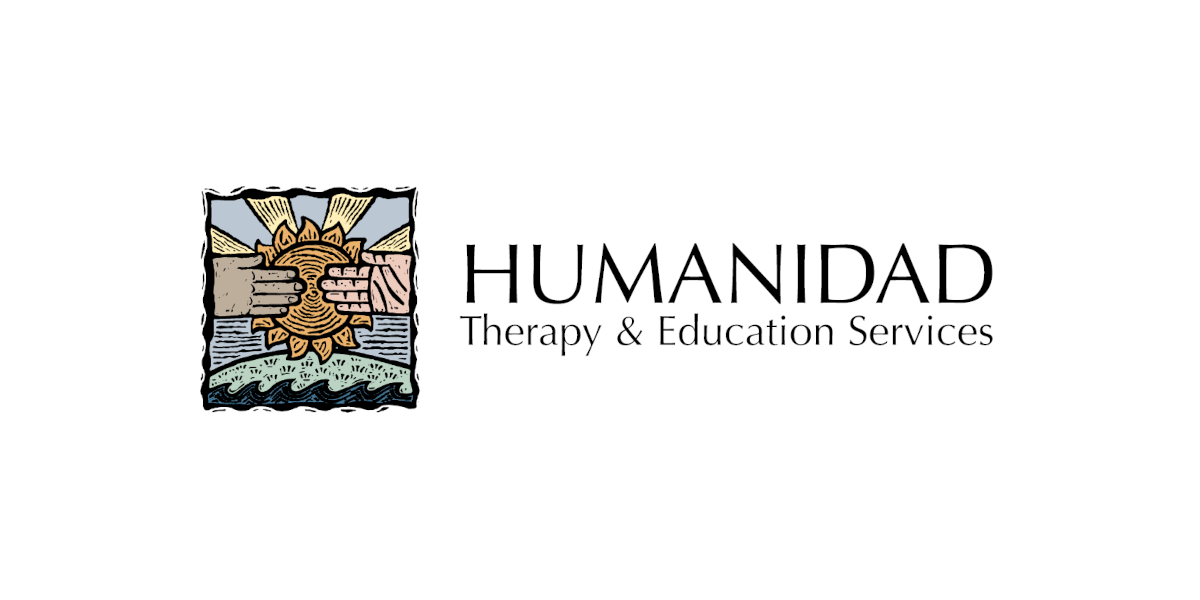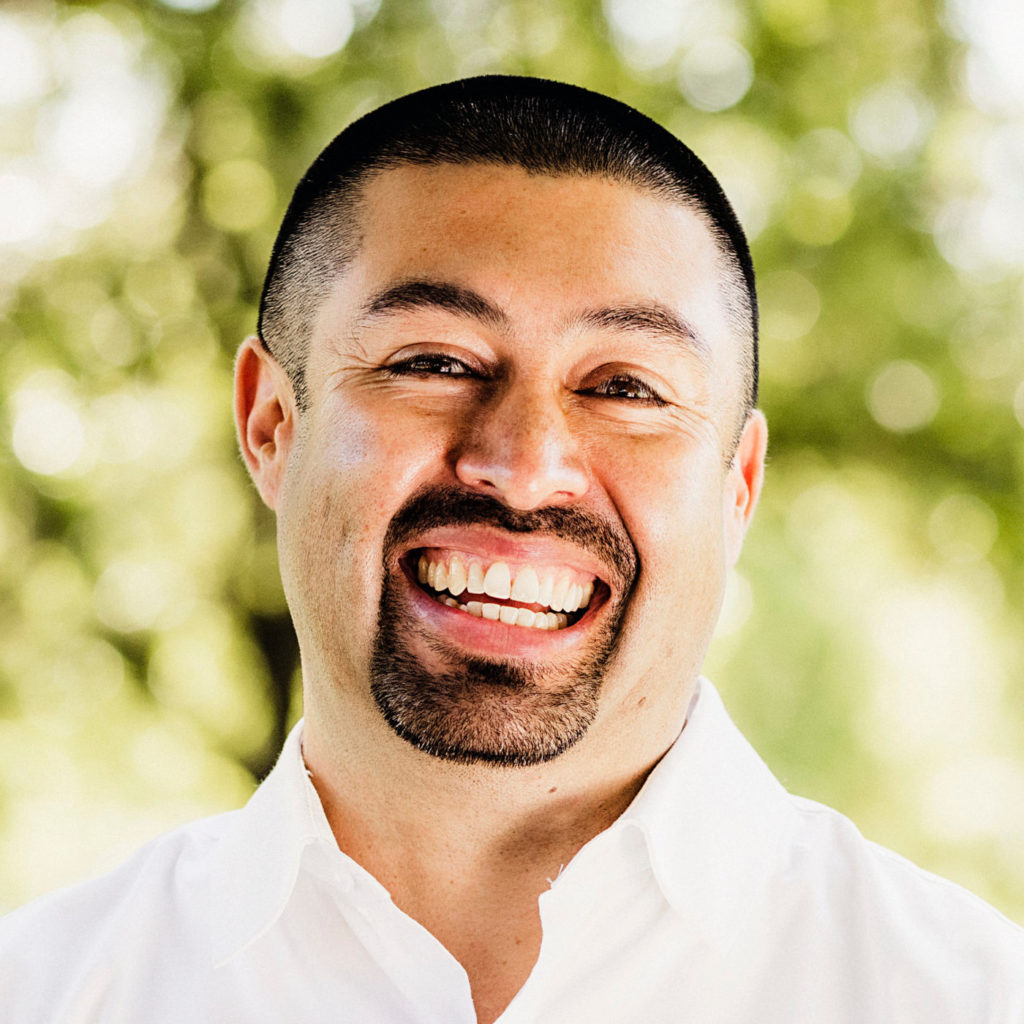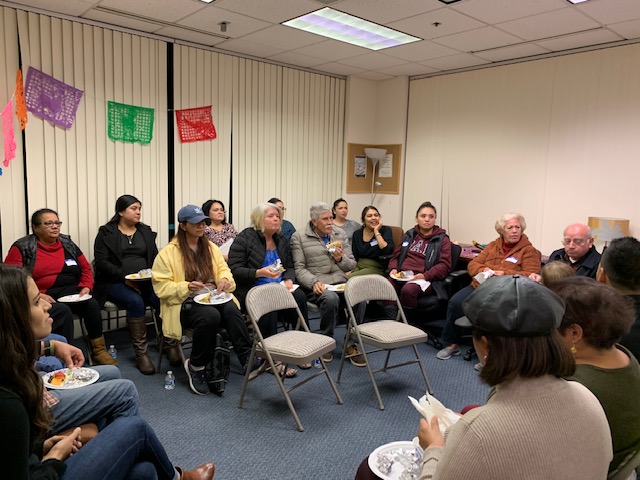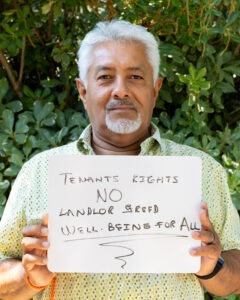

Partner Spotlight: Humanidad Therapy & Education Services
4 min read. We recently interviewed Juan Torres to talk about Humanidad Therapy & Education Services' new Bicultural Clinical Training Program.

The Healthcare Foundation, in partnership with Humanidad Therapy & Education Services and On the Margins, is launching a Bicultural Clinical Training Program to strengthen the pipeline of bilingual, bicultural mental health practitioners while increasing direct services in areas where there is the greatest dearth of support.
There will be much more to say about the Bicultural Clinical Training Program in the weeks and months ahead. This month, we spoke with Humanidad executive director Juan Torres about the significance of the new partnership in advancing the extraordinary mission begun over a decade ago by Humanidad’s founder Dr. Maria Hess.
How does the new Bicultural Clinical Training Program complement the work of Humanidad?
When Kim [Bender] and Danny [Domínguez] and Doctor Maria [Alvarez] approached me and our clinical director, Claudia Navarro, we felt it was a natural thing to do. Our founder, Dr. Maria Hess, was a professor at Sonoma State who back in 2012 saw the huge gap in bilingual and bicultural services. She tapped some of her best students to join her in starting Humanidad. In addition to bringing services to the Latinx community, the intention was to create an agency that can foster the growth and full potential of trainees and the next generation of therapists. Two of our co-founders—Claudia Cendejas, who is currently our board vice president, and Cecilia Perez, who is one of our clinical supervisors—came in as trainees and have grown from there.
So the original mission of Humanidad, to strengthen the lives of the Latinx community by increasing access to resources and mental health services and to support the next generation of therapists, ties in directly to this collaboration with the Healthcare Foundation and On the Margins. We’re more than happy to be part of it. It just naturally falls in with what we do.
“90% of our clients are Latino and most of them prefer Spanish. . . . So it’s really important for a therapist serving a community like ours to be bilingual. At the same time, our hope with this partnership is also to work with On the Margins and other partners to create a Spanish-language curriculum. . . Having their training grounded in Spanish means they can better communicate with and better serve the community.”
Juan Torres, Executive Director, Humanidad Therapy & Education Services
What does the new program allow Humanidad to do, or do more of?
Our services have been primarily focused in Santa Rosa, where the bulk of the Latino Spanish-speaking community live. But we’ve also been working at getting services to harder to reach populations. For example, we work closely with La Luz Center in the Sonoma Valley, a generally underserved area of the region. Like Sonoma Valley, Cloverdale, where the new program will focus much of its impact, has a significant Latino population that has been especially underserved. Larger organizations and government agencies find it hard to justify putting significant resources into those corners of our county. But we know that Cloverdale has a concentration of farmworkers and domestic workers, in particular, who are having a hard time. With this partnership with Healthcare Foundation and On the Margins, we are able to expand our capacity in Cloverdale and hire two additional trainees.
What is the goal for the trainees you’re taking on at Humanidad?In addition to expanding our ability to serve the community, the long-term goal is for these trainees to be embedded in a bilingual, bicultural agency that embraces their cultura and where they can grow. The usual educational and supervisory model for pre-license therapists is based in English. But here at Humanidad, 90% of our clients are Latino and most of them prefer Spanish. Even in the case of young adults who speak English, their parents usually don’t or they struggle to speak English. So it’s really important for a therapist serving a community like ours to be bilingual. At the same time, our hope with this partnership is also to work with On the Margins and other partners to create a Spanish-language curriculum so that trainees from the very beginning are learning that technical language in Spanish. This means they don’t have to struggle to translate what they learn into something their clients will understand. Having their training grounded in Spanish means they can better communicate with and better serve the community.

What is the thinking behind the program’s bicultural component?
Cultural competency is very important. Having an understanding of cultural references, and sometimes sharing a lived experience, makes a huge difference in the quality and outcomes of a therapeutic relationship. Most of our therapists are either immigrants themselves, who came here as children or as young adults; or they are first generation, they grew up here but experienced and understand the struggles of the immigrant community—dealing with undocumented status, fear of deportation, fear of asking for help, fear that they’re alone and there’s nobody there to help them. For someone who’s not an immigrant there might be empathy and some understanding but it’s not the same as someone who actually lived it. Here at Humanidad, many of us were born in another country and have grown up with some of those struggles. Our calling is to give back, and help those who might otherwise be too afraid to ask for help. We hope to continue the legacy that was started here by Dr. Maria Hess. For too long in the United States our immigrant culture was seen as a weakness, something that prevented us from succeeding in this country. Here at Humanidad, we believe it is a strength. It’s something that we learn from, that inspires us, and that we bring into our work to better serve our community. So we embrace it.
Can you say more about that hesitation to access mental health services?
It’s one thing to go to a food distribution center and say, I can’t pay my bills, can I get a box of food? That takes a lot of guts. But asking for help by saying, I suffer from anxiety, or, I get really depressed, that can be much harder still. The majority of the people that we help here at Humanidad are families, young parents with children. It’s reflective of the Latino, Latina, Latinx community here in Sonoma County. We’re a relatively young population. The average Latino is probably in the mid- to late-30s. The sort of struggles that typically come around that age are what we see here at Humanidad. Anxiety and depression continue to be the most common things. But, for men in particular, asking for help can be very hard. They see themselves as the providers. It’s the last thing that you want your family to know, that you’re struggling. However, if you have depression and anxiety it’s probably going to be affecting your work and how you’re able to provide for your family.
From Humanidad Therapy & Education Services:
“The Bicultural Clinical Training Program delivers both bilingual/bicultural supervision and a newly developed, locally relevant Spanish-language curriculum to bilingual/bicultural trainees serving local Spanish-speaking clients, including those in rural and underserved areas.
“Trainees will be paid $20 per hour for 20 hours per week and will also receive health benefits. Hours will be practiced via Telehealth and in our Santa Rosa and Cloverdale locations. This training offers a unique opportunity to contribute to a strong pipeline of bilingual mental health practitioners.”
INTERESTED IN APPLYING? Contact Claudia Navarro cnavarro@humanidadtherapy.org

Related News + Stories
Invest in Our Community
Your support is vital to our collective vision of eliminating health inequities in northern Sonoma County.
Donate



